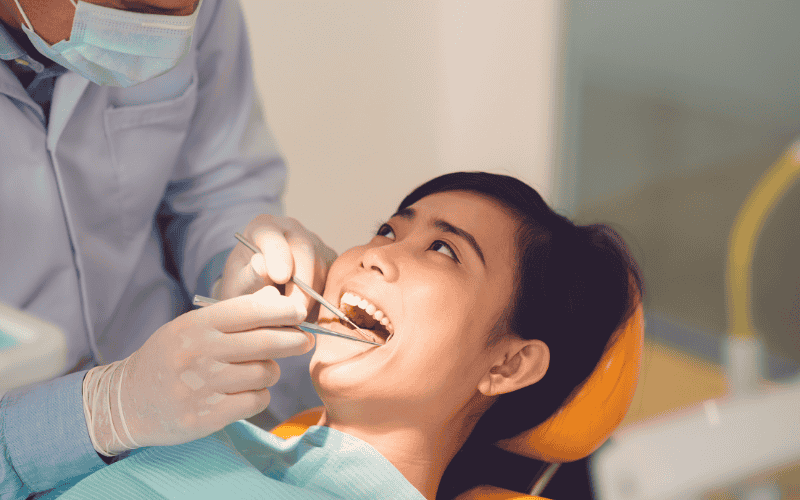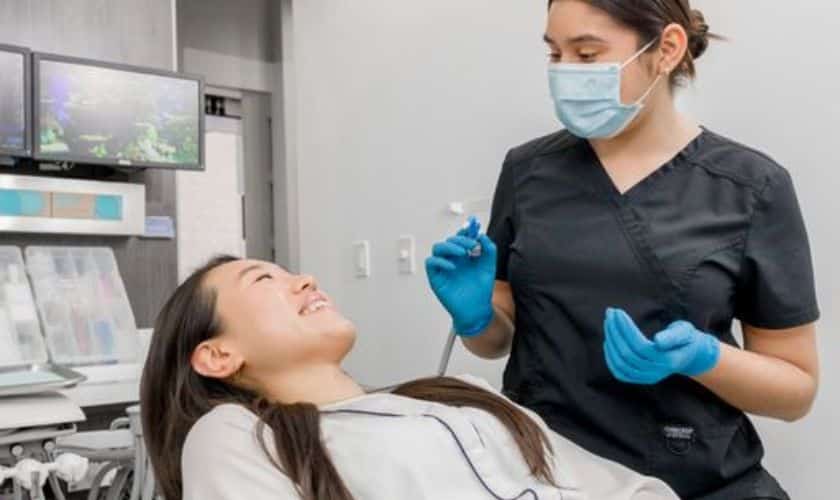Pearl Dental Blog

5 Common Mistakes to Avoid in Dental Implants Aftercare
Embarking on the journey of dental implant aftercare is integral to achieving a healthy and lasting smile. However, avoiding certain mistakes is equally essential to ensure the success of this transformative procedure. This introduction delves into the significance of post-dental implant care and highlights five common pitfalls to sidestep. By understanding and steering clear of these errors, individuals can optimize their healing process, enhance implant integration, and pave the way for a confident and comfortable oral future. A proactive approach to aftercare is the key to enjoying the benefits of dental implants for years to come.
Mistake 1: Neglecting Oral Hygiene in Dental Implants Aftercare
1. Crucial Post-Surgery Care: Oral hygiene is paramount after dental implant surgery. Neglecting proper care can lead to the accumulation of bacteria around the implant site, potentially causing infections and delaying healing.
2. Gentle and Effective Cleaning: Rigorous brushing and flossing can disrupt the healing process. Instead, follow your dentist’s instructions for gentle cleaning techniques and prescribed products to maintain cleanliness without harming the sensitive area.
3. Use of Oral Rinses: Incorporate recommended antimicrobial or saltwater rinses to keep the implant site clean. These rinses help minimize bacteria buildup and support a healthy environment for proper healing and integration.
Mistake 2: Ignoring Dietary Restrictions in Dental Implants Aftercare
1. Impact on Healing: Ignoring dietary restrictions can compromise the healing process of dental implants. Certain foods and habits can strain the implant site, hinder blood clot formation, and disrupt proper integration.
2. Avoid Hard and Crunchy Foods: Hard or crunchy foods like nuts, seeds, and hard candies can exert pressure on the implant area, potentially leading to implant movement or discomfort. Avoiding these foods during the initial healing phase is crucial.
3. Limit Acidic and Sugary Foods: Acidic and sugary foods can contribute to inflammation and negatively affect gum health. Minimize their consumption to create an environment conducive to optimal healing and long-term implant success.
Mistake 3: Skipping Follow-up Appointments in Dental Implants Aftercare
1. Ensuring Progress and Healing: Follow-up appointments are essential for monitoring the healing process. Skipping these appointments can lead to the oversight of potential issues that may arise during the critical post-operative phase.
2. Professional Assessment: Dental professionals can assess the implant’s integration, gum health, and overall progress during follow-up visits. Timely adjustments and interventions can be made to address any concerns and ensure successful healing.
3. Addressing Concerns Promptly: Regular follow-up appointments provide a platform to discuss any discomfort, pain, or complications that may arise. Promptly addressing these concerns enhances the chances of resolving issues before they escalate, contributing to a smoother recovery process.
Mistake 4: Overexertion and Physical Activities in Dental Implants Aftercare
1. Impact on Healing: Engaging in strenuous physical activities can impede the healing process of dental implants. Excessive movement and strain can disrupt blood flow to the implant site, affecting proper integration.
2. Risk of Implant Dislodgement: Vigorous activities like heavy lifting or intense workouts can increase the risk of implant movement or displacement. This jeopardizes the stability of the implant and may lead to complications.
3. Balancing Activity with Rest: During the initial healing phase, prioritize rest and avoid activities that strain the implant area. Gradually reintroduce physical activities as advised by your dentist, ensuring that you strike a balance between recovery and staying active.
Mistake 5: Tobacco and Alcohol Use in Dental Implants Aftercare
1. Negative Impact on Healing: Tobacco use, including smoking, hinders blood circulation and oxygen supply to the implant site, slowing down the healing process. Alcohol consumption can also impair the body’s natural healing mechanisms.
2. Reduced Implant Success: Both tobacco and excessive alcohol intake are associated with decreased implant success rates. They can hinder the integration of the implant with the jawbone, increasing the risk of implant failure.
3. Benefits of Quitting or Reducing: Quitting smoking and moderating alcohol consumption can significantly improve the chances of successful implant healing and long-term stability. These positive changes support better oral health and overall well-being.
Best Practices for Dental Implant Aftercare
1. Follow Prescribed Instructions: Adhere to the post-operative guidelines provided by your dentist. These instructions are tailored to your specific case and are crucial for optimal healing and implant integration.
2. Balance Caution and Activity: While rest is important, gradually resume normal activities as recommended by your dentist. Avoid strenuous activities during the initial healing period to minimize strain on the implant site.
3. Seek Professional Advice: If you experience any discomfort, pain, or concerns during the recovery process, don’t hesitate to reach out to your dental professional. Promptly addressing issues ensures timely intervention and successful healing.
Empowering Long-Term Oral Health through Dental Implant Aftercare
1. Investment in Future Wellness: Proper aftercare sets the foundation for long-term oral health. By avoiding common mistakes and following recommended practices, you’re investing in the durability and success of your dental implants.
2. Maintaining Implant Longevity: Effective aftercare promotes the longevity of dental implants. By supporting proper healing, integration, and gum health, you enhance the implant’s stability and durability, contributing to years of confident smiles.
3. Comprehensive Well-Being: A healthy oral state has far-reaching effects on overall well-being. Following aftercare guidelines not only ensures successful implant outcomes but also helps prevent potential oral health issues, contributing to your holistic health and quality of life.
In the journey towards successful dental implant aftercare, steering clear of common mistakes is paramount. By prioritizing oral hygiene, adhering to dietary guidelines, attending follow-up appointments, moderating physical activity, and avoiding tobacco and excessive alcohol, you pave the way for impeccable healing and enduring oral health. Empowering yourself with knowledge and proactive practices ensures a confident and lasting smile for years to come.





